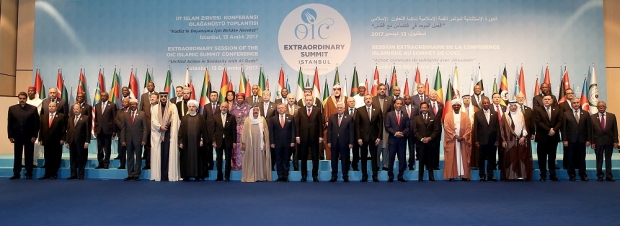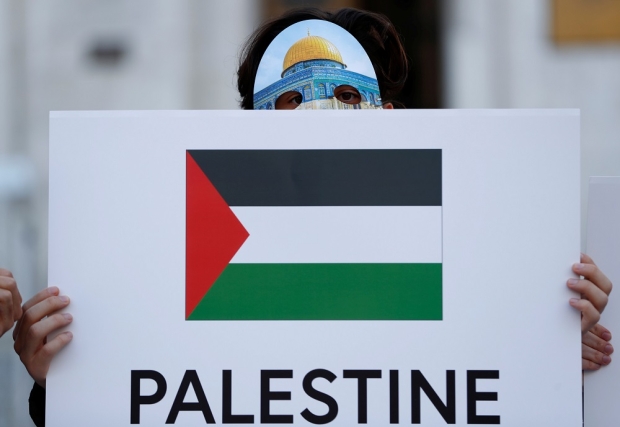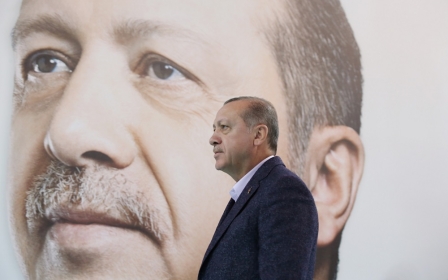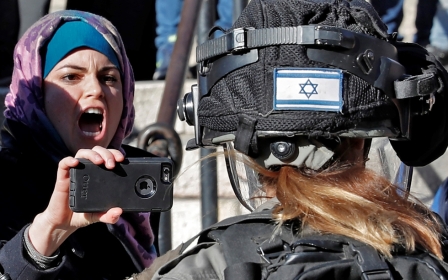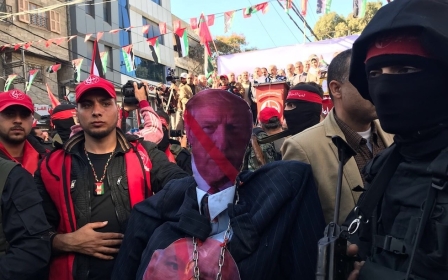Erdogan turns guns on US at summit on Jerusalem marred by feuds
ISTANBUL, Turkey – A call for a unified Islamic world to speak in one voice for Jerusalem fell victim to regional rivalries following low-level Saudi attendance at an emergency summit of heads of state at the Organisation of Islamic Cooperation (OIC) in Istanbul on Wednesday.
Turkey's president, Recep Tayyip Erdogan, called for the summit in the wake of Donald Trump’s decision to recognise Jerusalem as Israel’s capital on 8 December.
America, you might think you are strong. You are only strong if you are right
- Recep Tayyip Erdogan
"America, you might think you are strong, you might have weapons, nuclear weapons, you might have many aircraft," he said.
"But none of this means you are strong. You are only strong if you are right. The US is buttering the bread of fanatics with this decision."
He called for the recognition of the state of Palestine based on 1967 borders and said the US had lost its ability to mediate peace.
Erdogan called on the international community to step in, unruffled by the failure to even unite the OIC on Jerusalem.
“I repeat Jerusalem is our red line. The Noble Sanctuary will forever belong to Muslims. We will never give up on our demand for a sovereign and independent Palestine,” said Erdogan. “We cannot be spectators in this situation because it impacts all our futures.”
Jordan's king, Abdullah, was seen vigorously nodding in agreement with Erdogan’s remarks, showing the depth of unease among traditional regional US allies.
Mahmoud Abbas, the president of the Palestinian Authority, also addressed the conference.
Abbas called the decision one of the worst slaps landed on the Palestinians in a century.
"Jerusalem is and will forever be the capital of the Palestinian state... There will be no peace, no stability without that," he said.
OIC secretary general, Yousef Al-Othaimeen, was also set to make a speech before private discussions commenced.
Erdogan had called for the summit in his capacity as rotating chairman of the 57-member OIC.
The summit aims to reject the US decision while calling for increased recognition of the state of Palestine within borders determined in 1967, and with east Jerusalem as its capital.
Saudi-led bloc not present at highest levels
However the summit showed that even the fate of Jerusalem, a subject central to the Muslim world, was not enough for various feuding factions to put aside their differences, even temporarily.
The Saudis sent only their minister for religious affairs to the summit. Saudi allies Egypt and Bahrain followed suit by sending representatives at the foreign ministerial level only. Bahrain sent its justice minister, while the UAE sent a representative of its foreign ministry.
This pointed to the same divisions that have emerged – apart from the traditional Saudi-Iran rift - since the Saudi-led bloc imposed a blockade on neighbour Qatar.
Qatar and Iran were represented at the OIC summit at the highest level with the participation of the emir and president respectively.
Kuwait, which has tried to mediate between Qatar and Saudi Arabia, was among the 23 countries to send a head of state to the OIC emergency summit.
The summit attendance on Wednesday indicated that the OIC, founded in 1969 after an arson attack on Jerusalem’s Al-Aqsa Mosque, remains a deeply divided and ineffective body, where member states are unable to put aside differences and represent the Islamic community with a single voice.
It has also been reported that Trump would not have made his decision without regional backing from the likes of Saudi Arabia.
The extraordinary OIC summit kicked off with a meeting of foreign ministers earlier on Wednesday.
Turkish foreign minister, Mevlut Cavusoglu, in his address said: “The United States with this decision aims to legitimise Israel’s attempt to occupy Jerusalem. It expects the Islamic community to stay silent. But we will never remain silent in the face of this. This US decision has no validity for us.”
A communique is expected later on Wednesday but it remains unclear if all sides will be able to agree to a joint statement.
Middle East Eye propose une couverture et une analyse indépendantes et incomparables du Moyen-Orient, de l’Afrique du Nord et d’autres régions du monde. Pour en savoir plus sur la reprise de ce contenu et les frais qui s’appliquent, veuillez remplir ce formulaire [en anglais]. Pour en savoir plus sur MEE, cliquez ici [en anglais].


